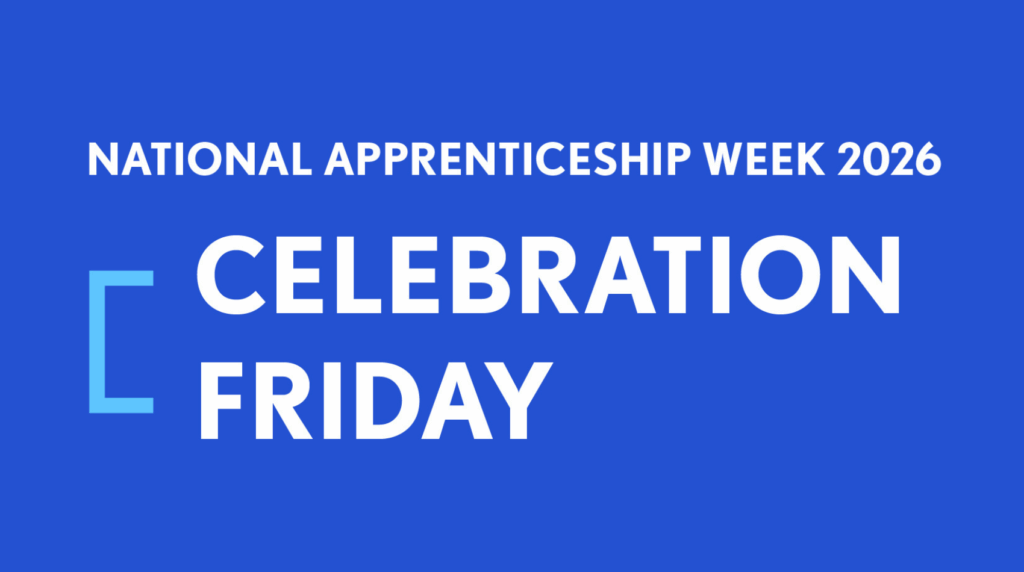Abi Hickey,
Content Creator
3rd October 2024
How to be a better mentor: essential tips for guiding apprentices
Mentorship is more than just offering advice—it’s about helping to shape the future of individuals entering your industry and helping them succeed in their careers. For apprentices, who are often navigating the practical aspects of their chosen field for the first time or branching out into a new sector/ upskilling themselves, mentorship can be the key to unlocking their potential. However, to truly make a lasting impact, it’s important to continuously refine your mentoring skills.
Why mentorship matters in apprenticeships
Mentorship plays a critical role in apprenticeships, where on-the-job learning and practical experience are the key focus. A mentor helps to provide apprentices with a wealth of knowledge, real-world skills, and, often, access to valuable industry networks that apprentices might not otherwise have. Mentors bridge the gap between theory and practice, helping apprentices understand how to apply what they’ve learned in a real-world context.
Being a mentor to an apprentice isn’t just about overseeing tasks—it’s about guiding, supporting, and empowering someone to grow. But how can you ensure you’re doing it effectively?
How to be a better mentor
Clarify expectations and goals
The foundation of a successful mentorship is clarity. As a mentor, it’s essential to establish clear expectations from the start. What does your learner hope to achieve during the apprenticeship? What skills do they need to develop? By aligning on these goals, you can structure your guidance to be purposeful and productive.
Tips:
- Have an initial conversation where you outline the expectations on both sides.
- Help your apprentice set specific, measurable, and realistic goals.
- Check-in regularly to assess progress and adjust these goals as necessary.
When both parties understand the objectives of the mentorship, the relationship becomes more focused, and the apprentice knows what they’re working towards.
Be approachable and accessible
Your learner should feel comfortable coming to you with questions, concerns, or even mistakes. As a mentor, one of your key roles is to provide a safe learning environment. Apprentices are bound to encounter challenges, and having someone they can turn to for guidance will make a world of difference.
Tips:
- Make it clear that no question is too small or unimportant.
- Be available for regular check-ins, and create an open-door policy where they can approach you when needed.
- Offer constructive criticism in a supportive way to foster a growth mindset.
An approachable mentor creates trust, which allows for an honest and stronger relationship.
Provide constructive feedback
Feedback is essential in helping apprentices grow. It’s not just about telling them what went wrong; it’s about explaining why something went wrong and how to improve. Constructive feedback helps apprentices understand their mistakes and provides them with a path to improvement.
Tips:
- Be specific. Instead of saying, “You did a great job,” explain what exactly they did well and why it mattered.
- Offer feedback regularly—don’t wait for a big review or formal evaluation.
- Frame feedback in a way that encourages learning. For example, say, “Here’s something I think you could try next time,” rather than “This didn’t work.”
Constructive feedback not only improves skills but also builds confidence, showing the apprentice that improvement is part of the learning process.
Foster independence, not dependence
While your learners may rely on your expertise, it’s essential to help them develop the skills to think and act independently. The goal of mentorship is not to create dependency but to empower your apprentice to make decisions and solve problems on their own.
Tips:
- Encourage apprentices to try solving a problem before seeking your input.
- Ask open-ended questions that guide them to think critically about their actions and decisions.
- Gradually give them more responsibility as they develop confidence and skills.
By fostering independence, you are helping your mentee become a self-reliant professional capable of handling real-world challenges.
Be a role model
Mentoring is not just about offering advice—it’s about demonstrating the behaviours, ethics, and professionalism that you want your learner to adopt. As a mentor, your actions speak louder than words. How you handle challenges, communicate with others, and approach your work will set an example for your apprentice to follow.
Tips:
- Practice the behaviours you want to see in your learner, such as punctuality, professionalism, and a strong work ethic.
- Share your experiences, both positive and negative, to show how you’ve learned from mistakes.
- Demonstrate empathy, resilience, and adaptability in the workplace.
Being a role model goes beyond technical skills—it shows your apprentice what it means to succeed in your industry and workplace.
Open doors for networking and opportunities
As a mentor, one of the greatest gifts you can give an apprentice is access to your professional network. Apprentices often lack the connections needed to advance their careers, and you can help to bridge that gap by introducing them to key contacts, industry events, or potential job opportunities.
Tips:
- Introduce your apprentice to colleagues or other industry professionals who can offer different perspectives or opportunities.
- Invite them to attend industry events, conferences, or meetings with you.
- Recommend them for relevant projects or assignments that can help build their experience and resume.
Helping your learner build a network early on can have a long-lasting positive impact on their career goal.
Encourage continuous learning
Mentorship doesn’t stop at the end of an apprenticeship. Encourage your learner to keep learning and growing beyond the programme. Whether through formal education, online courses, or self-directed learning, continuous improvement is key to career success.
Tips:
- Share resources like books, articles, and online courses that can help them continue developing skills.
- Encourage them to set new learning goals after the apprenticeship ends.
- Stay in touch after the formal mentorship period to provide ongoing guidance and support.
Promoting a mindset of lifelong learning shows that mentorship is a journey, not a one-time interaction.
Mentorship is a lifelong learning process
While being a mentor is a rewarding role, it also comes with the responsibility of shaping the next generation of professionals. By continuously improving your mentorship skills, you can make a lasting impact on your learner’s career and personal growth.
To be a better mentor, focus on clarity, communication, and support while encouraging independence and growth. Lead by example and provide your learner with the tools, network, and confidence they need to thrive in their career. Remember, mentorship is a two-way street—while you guide your apprentice, you too will grow as a professional and leader.
————–
For further insights and guidance on maximising your apprenticeship funding, please don’t hesitate to reach out to us at:
Tel: 023 8017 0380
Email: hello@kiwieducation.co.uk
Kiwi & Yuzu Ltd is committed to empowering businesses and individuals through quality education, training, and skills development.
Employers
Read More
Individuals
Available Courses
International
Our Partnerships


